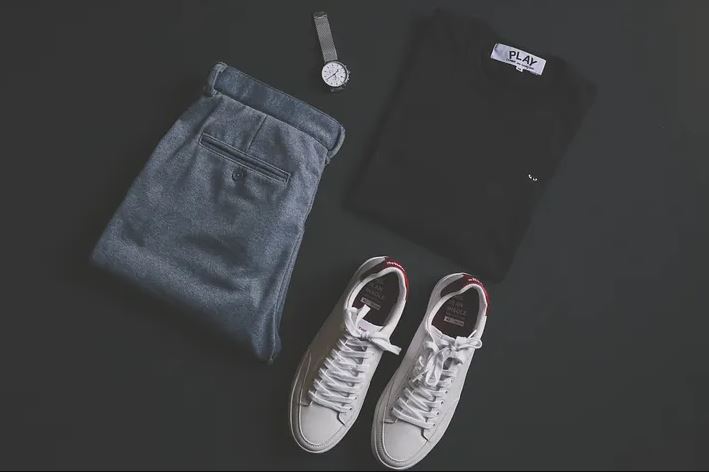
Style Meets Sustainability: The Ascendance of Ethical Fashion
In modern consumerism, our choices weaves a narrative far beyond the mere aesthetics of attire. Have you ever paused, amidst the whirl of fashion trends, to ponder the deeper threads of your clothing’s story? It’s a tale that extends its reach from the loom to the landfill, encompassing not just the wearer, but the weaver, the earth, and its waters. The burgeoning realm of ethical fashion illuminates a path divergent from the ephemeral allure of fast fashion, spotlighting the imperative of sustainability.
This movement isn’t just about fashion; it’s a silent dialogue between humanity and nature, a call to harmonize our sartorial desires with the planet’s rhythm and the dignity of those who clothe us. As we stand at this crossroads, the rise of ethical fashion isn’t merely a trend — it’s a profound shift in perspective, beckoning us to reevaluate the impact of our wardrobe choices on the world’s tapestry. Let’s embark on this journey to understand how our fashion footprint can tread lightly and compassionately, shaping an industry that dresses not just our bodies, but our consciences too.
The Rise of Ethical Fashion: A Conscious Evolution
The fashion industry, once largely unconcerned with its environmental and social impact, is undergoing a significant transformation. Consumers are becoming increasingly aware of the hidden costs of fast fashion, and a movement towards ethical fashion is gaining momentum.
What is Ethical Fashion?
Ethical fashion goes beyond aesthetics and trends. It prioritizes sustainability, fair labor practices, and animal welfare throughout the entire garment lifecycle. This includes considerations like:
* Materials: Utilizing organic, recycled, or sustainably sourced materials like cotton, hemp, and Tencel.
* Production: Choosing manufacturers with ethical labor practices, ensuring fair wages and safe working conditions for garment workers.
* Transparency: Providing clear information about the origins and manufacturing processes of each garment.
* Consumption: Promoting slow fashion, repairing and buying secondhand clothes, and reducing overall clothing consumption.
Why is Ethical Fashion Important?
The traditional fashion industry has several detrimental impacts:
* Environmental Damage: Cotton production uses vast amounts of water and pesticides, while synthetic fibers contribute to microplastics and pollution.
* Human Rights Abuses: Garment workers, often in developing countries, can face unfair wages, long hours, and unsafe working conditions.
* Animal Cruelty: Animal-derived materials like leather and fur can involve inhumane treatment of animals.
By choosing ethical fashion, consumers can:
* Reduce their environmental footprint: Purchase products with lower environmental impact and support sustainable practices.
* Contribute to fairer labor practices: Support brands that treat their workers ethically and ensure human rights are respected.
* Make more conscious choices: Be mindful of their clothing consumption and prioritize quality over quantity.
The Growing Movement
Several factors are driving the rise of ethical fashion:
* Increased awareness: Consumers are becoming more informed about the issues within the fashion industry and demanding alternatives.
* Technological advancements: Innovations in materials and production processes are making sustainable options more accessible and affordable.
* Rise of conscious brands: Numerous brands are emerging that prioritize ethical practices and transparency throughout their supply chains.
* Influencer impact: Sustainable fashion icons and social media advocates are promoting ethical choices and inspiring others to follow suit.
Challenges and Opportunities
While the movement is gaining traction, there are still challenges:
* Accessibility and affordability: Sustainable options can sometimes be more expensive than traditional fast fashion.
* Greenwashing: Some brands may engage in greenwashing, making false or misleading claims about their sustainability practices.
* Lack of regulation: The lack of industry-wide regulations can make it difficult to ensure ethical practices throughout the supply chain.
Despite these challenges, the future of ethical fashion is promising. As awareness grows and technology advances, ethical options will become more accessible and affordable. With continued consumer demand and responsible practices from brands, the fashion industry can become a force for good, benefiting both people and the planet.
Ready to Get Involved?
Here are some ways you can support ethical fashion:
* Do your research: Choose brands that are transparent about their practices and committed to sustainability and ethical labor standards.
* Invest in quality: Opt for well-made garments that will last longer, reducing your overall consumption.
* Shop secondhand: Give pre-loved clothes a new life and reduce your impact on the environment.
* Support local designers and sustainable brands: Encourage ethical practices and build a connection with your community.
* Speak up: Advocate for ethical fashion and hold brands accountable for their practices.
Remember, every conscious choice you make counts. By embracing ethical fashion, you can contribute to a more sustainable and responsible future for the industry and the planet.